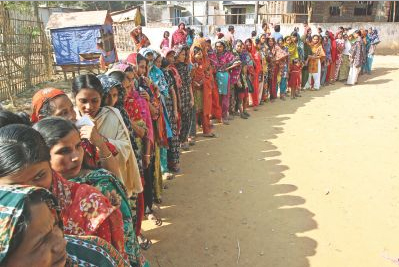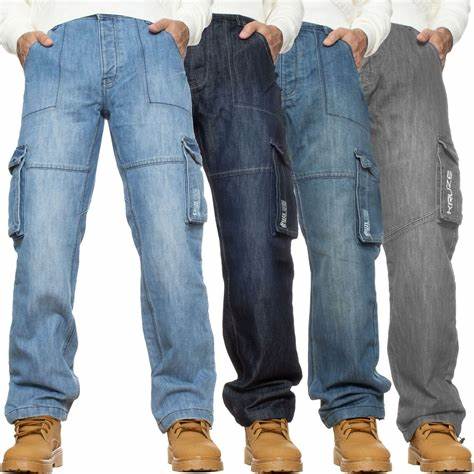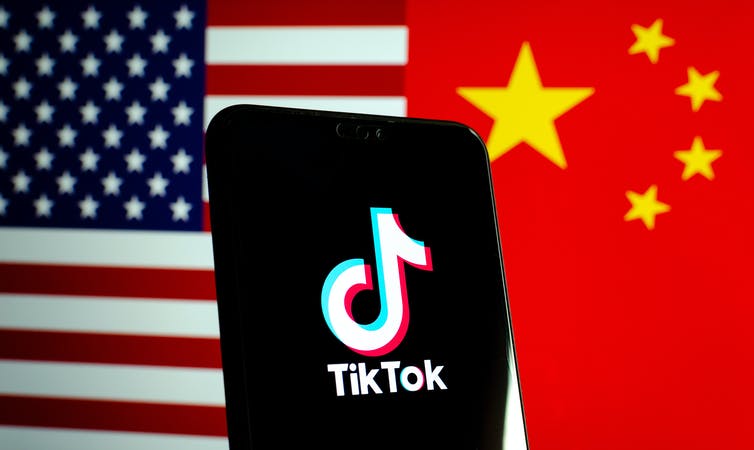
 London Fashion Week label Peter Pilotto is designing a capsule collection with American retailer Target for spring 2014, which will feature women’s apparel, accessories and swimwear. The limited-edition line will be available from February 9, 2014 at most Target stores in the US and Canada, as well as Target.com. The retailer is also partnering with luxury e-tailer Net-a-Porter to offer a curated selection of the collection, to reach an international audience...Read More
London Fashion Week label Peter Pilotto is designing a capsule collection with American retailer Target for spring 2014, which will feature women’s apparel, accessories and swimwear. The limited-edition line will be available from February 9, 2014 at most Target stores in the US and Canada, as well as Target.com. The retailer is also partnering with luxury e-tailer Net-a-Porter to offer a curated selection of the collection, to reach an international audience...Read More
Chinese menswear fashion company Zuoan Fashion announced its second quarter results, which ended on June 30th, 2013. Net profit increased by 2.2 percent from 66.2 million yuan (10.8 million US dollar) last year to 67.6 million yuan (11 million US dollar) in the second quarter due to a higher sales volume and lower selling and distribution costs...Read More
 ANALYSIS_British retailer Next Plc. has admitted to have had a “stock blunder” due to a warmer than expected month of August that left the high street fashion brand short on summery clothes. Nevertheless, Next noted a 2.2 percent growth in revenue to 1.68 billion pounds during the first half of its current fiscal year...Read More
ANALYSIS_British retailer Next Plc. has admitted to have had a “stock blunder” due to a warmer than expected month of August that left the high street fashion brand short on summery clothes. Nevertheless, Next noted a 2.2 percent growth in revenue to 1.68 billion pounds during the first half of its current fiscal year...Read More
 After the big compensation meeting that took place yesterday and on Wednesday, 11th and 12 September, 2013 in Geneva, the victims of the fire at Tazreen Fashions in November 2012 and the collapse of the Rana Plaza building in April of this year are still left out in the rain. Literally in some cases as with the main bread-earner(s) gone, many families now don’t even have enough money to pay for a roof over their heads.
After the big compensation meeting that took place yesterday and on Wednesday, 11th and 12 September, 2013 in Geneva, the victims of the fire at Tazreen Fashions in November 2012 and the collapse of the Rana Plaza building in April of this year are still left out in the rain. Literally in some cases as with the main bread-earner(s) gone, many families now don’t even have enough money to pay for a roof over their heads.
Of the 29 brands and retailers that were invited to discuss compensation payments as they had all been producing garments at the five textile factories housed at Rana Plaza, only nine showed up: Bon Marché, Camaieu, El Corte Inglés, Kik, Loblaw, Mascot, Matalan, Primark and Store Twenty One. Twenty others, among them big players like Carrefout, Benetton, Inditex and Walmart, failed to show up; the remaining ones are Adler, Auchan, Cato Corp, The Children’s Place, Dressbarn, Essenza, FTA International, Gueldenpfennig, Iconix Brand, JC Penney, Kids Fashion Group, LPP, Mango, Manifattura Corona, NKD, Premier Clothing, PWT Group and Texman.
Only 9 brands participated the Bangladesh meeting
IndustriALL Global Union assistant general secretary Monika Kemperle was disappointed by the small number of participants on the buyers’ side. “Consumers will be shocked that almost a half-year has passed since the Rana Plaza disaster with only one brand so far providing any compensation to the disaster’s victims. I respect those brands that came to these meetings. But I cannot understand brands that are not around the table,” she said.
After the meeting, the one brand that has been paying up so far - Irish clothing discounter Primark - committed to providing a further three months’ salary to all affected families as emergency relief but more is needed. “We appreciate Primark having already made a three month salary payment to the injured and victims’ families. But when I go back to Bangladesh they will ask me what more was decided here. Those families need food, medicine and housing. Please, all brands and retailers, match that three months salary for these people in urgent need. Some time can be expected to establish a sustainable solution, but an immediate payment to help these families must be made now,” said ZM Kamrul Anam of the IndustriALL Bangladesh Council.
Clothing giant C&A did attend the compensation meeting for the Tazreen Fashions victims on Wednesday and demonstrated its commitment and willingness to pay a substantial compensation. German clothing company Karl Rieker was also at the meeting and confirmed its readiness to contribute. The remaining 12 brands and retailers that failed to show up were Delta Apparel, Dickies, Disney, El Corte Inglés, Edinburgh Woolen Mill, Kik, Li & Fung, Piazza Italia, Sean John, Sears, Teddy Smith and Walmart.
Especially retail giant Walmart was criticized for its apathy. “Walmart is the world's largest retailer and one of the largest buyers from Bangladesh. They should be a leader in taking responsibility for their global supply chain. Once again Walmart had failed to make a commitment to the workers in Bangladesh who produce the millions of garments sold around the world at large profit,” commented UNI Global Union general secretary Philip Jennings.
Though the Bangladesh meeting was a first step, concrete results have yet to be achieved. It was agreed though to meet again in two weeks to discuss further steps and a coordination committee was formed. All attending brands and retailers confirmed their financial contribution and their commitment to go forward as soon as possible. Those who didn’t come won’t be able to hide forever: Ineke Zeldenrust from the Clean Clothes Campaign confirmed that the organization and others will continue to put pressure on the brands that have not yet committed to any negotiation process, let alone compensation payments.
In a related case, the workers of Ali Enterprises in Karachi, Pakistan where a fire killed 250 workers and injured more than 600 exactly a year ago and their families are also still awaiting their compensation payments. Though German textile discounter Kik as the only known buyer attended the Rana Plaza meeting in Geneva on Thursday, the Ali Enterprises case is long from closed. Upon mounting public pressure, Kik agreed in December 2012 to pay one million US dollars in emergency relief. Though most of this amount has been distributed among the families of the victims, more is pending and needed.
 After New York Fashion week comes more fashion in London and Madrid. Both cities have their fashion weeks from today untill Tuesday, September 17th...Read More
After New York Fashion week comes more fashion in London and Madrid. Both cities have their fashion weeks from today untill Tuesday, September 17th...Read More
ANALYSIS_Shares of Canadian yoga apparel retailer Lululemon Athletica Inc. (NASDAQ:LULU) were down in pre-market trading Thursday, dropping about eight percent from Wednesday’s close, after the company issued a mixed earnings report...Read More
American fashion triumphs when it comes to casualwear and the New York spring summer 2014 collections showed a strong sport-chic influence. Tennis was a recurring theme, as seen at Alexander Wang and Tess Giberson, and the colour white shone through and was emphasized with lightness and pale shades in most of the collections...Read More
REPORT_ Wolford had a 2.4 percent decline in revenues in the first quarter of the financial year 2013-14. Revenue growth in retail points of sale was plus 5 percent. Wolford expects an improvement in wholesale revenues that should halt the current negative trend and it expects the retail business to generate further revenue growth...Read More
The prospects of inclusion of readymade garments and hand-knotted carpets in the Nepal Trade Integration Strategy (NTIS) 2010 priority product list, is getting brighter. Despite the two product categories contributing a great share in the country’s overall exports, these items have not been included in NTIS’s list of 19 priority items. Hence, industrialists and exporters have continuously been lobbying for their inclusion in the list.
In view of this lobbying, the ministry of commerce and supplies has decided to hold a mid-term review of NTIS 2010, and is also likely to review its product list. The review would assess and evaluate all the projects undertaken under the NTIS program.
For Nepali financial year that ended on July 15, 2013, the country’s Pashmina exports stood at Rs 2.07 billion, compared to exports of above Rs 1.9 billion in 2011-12. However, exports of most other products included in the NTIS priority list faced decline during the period.
Nepal Trade Integration Strategy 2010 charts a possible course for the development of the country’s export sector over the next three to five years, together with possible capacity development.
The European Union has been helping Pakistan get ready for the Generalized System of Preferences (GSP). Pakistan expects to gain this facility in 2014, which would help its textile industry optimally utilize its potential, which still remains untapped. A comprehensive strategy is being developed in this regard to take full advantage of the free market access under the GSP Plus system.
Germany particularly has been helping Pakistan’s textile industry to improve its operations through energy conservation. Meanwhile, the All Pakistan Textile Mills Association (APTMA) is gearing up to invest in a coal-based 3,000 megawatts energy project to address the energy issue and is planning to organize several road shows across the EU and the US to promote Pakistani textiles in those markets.
In this context APTMA has taken up a new initiative called ‘Triple Bottom Line’ (TBL). This is a corporate social responsibility strategy that focuses on people, planet and profit to project the entire textile supply chain of Pakistan as an environment-friendly and socially responsible industry.
APTMA is also formulating an integrated policy to convince international customers that Pakistan has a reliable textile chain for business purposes. It has already adopted a number of initiatives during the last three years to comply with international business practices.











